Search Results
Showing results 501 to 520 of 650
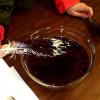
Find the Best Way to Clean Oil off Bird Feathers
Source Institutions
In this experiment, learners examine the way oil affects bird feathers and test different cleanup methods to find out which works best.
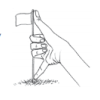
Handy Measuring Ratio
Source Institutions
In this activity, learners use their hands as tools for indirect measurement.
Making Rivers
Source Institutions
In this outdoor water activity, learners explore how to change the direction of water flow. Learners make puddles in dirt or use existing puddles and sticks to make water flow.
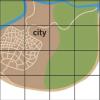
Conservation Island
Source Institutions
In this lesson, learners will understand the concepts behind endangered and extinct animals and develop their own conservation plan to save three endangered species.

Engineering Ups and Downs
Source Institutions
In this activity, learners explore the engineering and principles behind working elevators.
Energy Audit
Source Institutions
In this lesson, learners will practice graphing and statistically analyzing data.

Speedy Shelter
Source Institutions
In this design challenge activity, learners invent an emergency shelter that can fit a person and is sturdy and quick to build.

Penny Battery
Source Institutions
In this activity, learners light an LED with five cents. Learners use two different metals and some sour, salty water to create a cheap battery.

Popsicle Bridge
Source Institutions
In this activity, learners explore how engineering has impacted the development of bridges over time, including innovative designs and the challenge of creating bridges that become landmarks for a cit
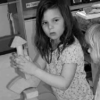
Building Tall
Source Institutions
In this engineering activity (page 2 of PDF), young learners investigate how a wide base can make a building more stable. Learners use blocks or boxes of different sizes to construct stable towers.

The Turing Test: Conversations with Computers
Source Institutions
This activity aims to stimulate discussion on the question of whether computers can exhibit “intelligence,” or are ever likely to do so in the future.

Space Elevator
Source Institutions
In this activity, learners imagine what the world might look like if we could build an elevator to space!

Great Steamboat Race
Source Institutions
In this outdoor activity, learners race small boats, made of cork, balsa wood, popsicle sticks etc., to investigate the rate and direction of currents in a stream or creek.

Safe in the Sun
Source Institutions
In this activity on page 13 of the PDF, use a special plastic card that has been painted with a chemical that changes color when it is in UV light.

Sail Car Design
Source Institutions
This activity (on page 3 of the PDF under GPS: Sailboat Design Activity) is a full inquiry investigation into design optimization.
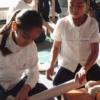
Invent on the Spot
Source Institutions
In this activity, learners design a device to solve a problem: how to get a ball out of a drain pipe.
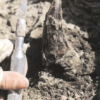
Compare Dinosaur Body Parts
Source Institutions
In this activity, learners explore the size and scale of dinosaurs. Learners listen to "The Littlest Dinosaurs" by Bernard Most to learn about the different sizes of dinosaurs.

Algebra: Aw Chute!
Source Institutions
In this math lesson, learners determine and compare the rate of descent of various learner-constructed parachutes. Learners construct parachutes that will have maximum hang times.
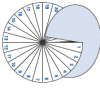
Sleep Patterns
Source Institutions
In this activity about sleep rhythms (on page 21 of the PDF), learners will collect data about their own sleep cycles and use a fraction wheel to examine their data.

Community Wind Project
Source Institutions
In this thought-provoking activity, learners plan a hypothetical project to build and operate wind turbines in their community.
